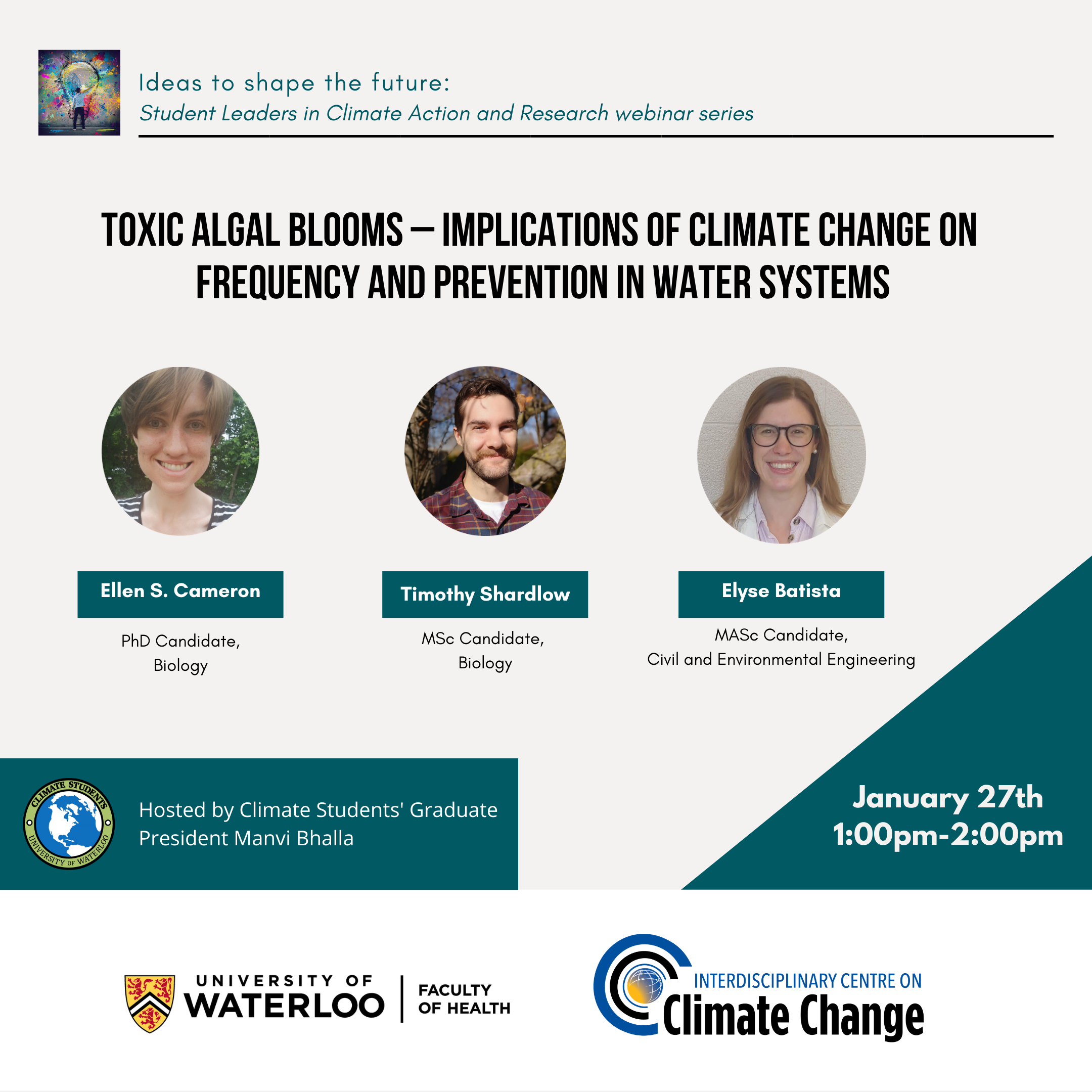UWaterloo students discussed the topic of toxic algal blooms in a recent webinar presented by the Interdisciplinary Centre on Climate Change (IC3) and Faculty of Health. The webinar “Toxic Algal Blooms – Implications of Climate Change on Frequency and Prevention in Water Systems” was held on January 27th, 2021.
Speakers Ellen S. Cameron (PhD Candidate, Biology), Timothy Shardlow (MSc Candidate, Biology) and Elyse Batista (MASc Candidate and Research Technician, Civil and Environmental Engineering) led an informative and engaging conversation about the impacts of climate change on toxic algal blooms.
Ellen and Timothy are part of the forWater Research Network, a pan-Canadian research network helping communities adapt by using sustainable forest management for active source water protection. Elyse is part of the WaterSTP Research Group and The Water STP Group is a trans-disciplinary collaboration between university professors and scientists working in close partnership with industry, government, and academia on a wide range of water projects in Canada and internationally.
Both the forWater Network and Water Science, Technology & Policy research group are led by Monica Emelko, an IC3 member and professor in the department of Civil and Environmental Engineering at the University of Waterloo.

Webinar Description
Water is a vital resource to human life, but water quality is often threatened due to toxic algae, more specifically, cyanobacteria. These photosynthetic bacteria are found globally in aquatic ecosystems and are capable of producing potent toxins and chemical compounds associated with taste and odour problems in drinking water sources. Cyanobacteria blooms are predicted to increase in frequency, severity, and duration as a result of changing environmental conditions directly and indirectly linked to climate change. Increased occurrences of cyanobacteria blooms will impact aquatic ecosystem health, structure and function and will have subsequent impacts on water quality management and drinking water treatment.
Join us for an overview on the direct and indirect impacts of climate change on aquatic ecosystem structure and health, cyanobacteria bloom dynamics and the implementation of modern molecular techniques in understanding the risk of toxin production in cyanobacteria populations and assessment of water quality.
This webinar will include a brief overview of the following themes discussing the impacts of climate change on:
1) Aquatic ecosystem structure,
2) Toxic cyanobacteria blooms, and
3) Water Quality Monitoring and Drinking Water Treatment.
This was the second event in ourIdeas to shape the future: Student Leaders in Climate Action and Research webinar series. Follow us on Twitter to stay up to date on upcoming student webinars and other IC3 events and programming.